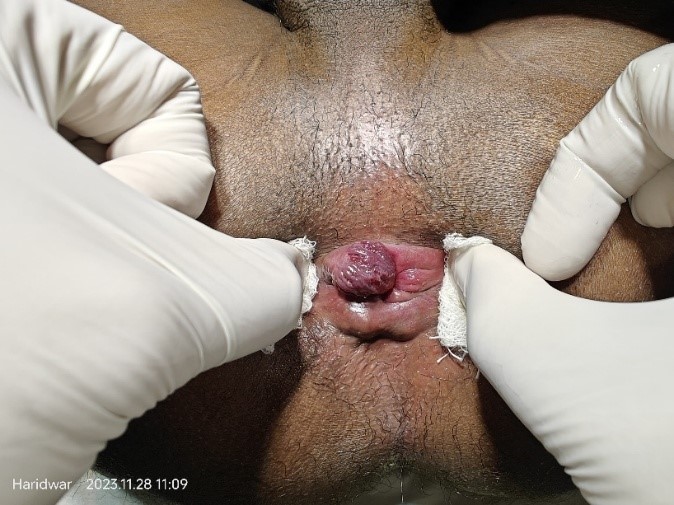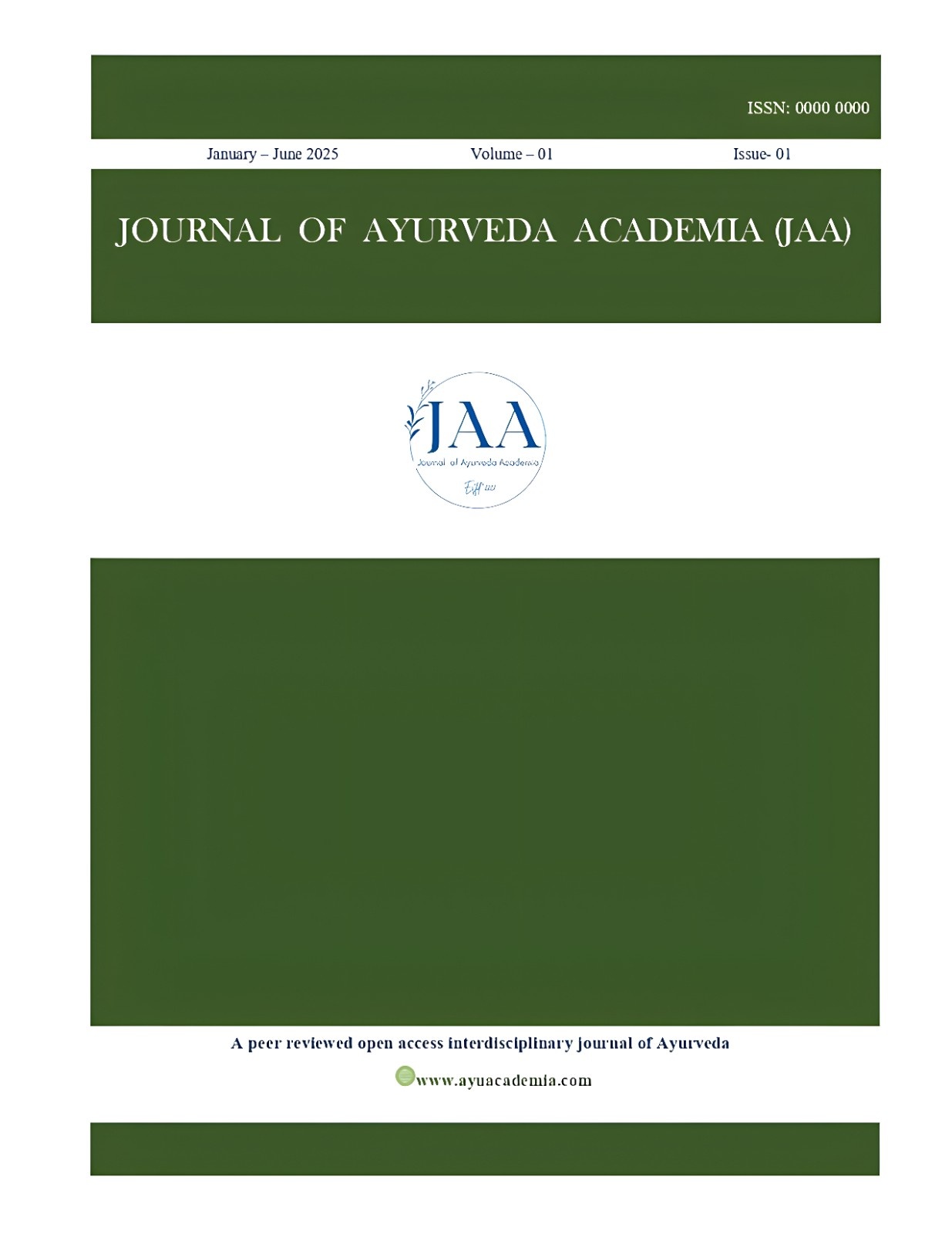Kshara Pratisarana in Arsha (II Degree Haemorrhoids): A Classical and Clinical Case Study
ORIGIONAL RESEARCH (CASE STUDY)
DOI:
https://doi.org/10.64280/JAA.2025.V1I104Keywords:
Arsha, Haemorrhoids, Kshara Karma, Apamarga KsharaAbstract
ABSTRACT
Introduction: Arsha, commonly known as haemorrhoids, is a prevalent condition characterized by swollen blood vessels in the anal and rectal regions, leading to symptoms such as bleeding, pain, mucous discharge, and discomfort. Contributing factors include chronic constipation, prolonged sitting, straining during bowel movements, genetic predisposition, and unhealthy lifestyle choices like a sedentary routine and a low-fiber diet.
Objective: To demonstrate the efficacy of Kshara karma in the management of Arsha through a case report.
Methods: A 30-year-old male patient presented at the Shalya OPD, Corporate College of Ayurvedic Science, Bhopal, with symptoms of a protruding mass during defecation, rectal bleeding, and mucous discharge. The patient was treated with Kshara karma using Apamarga Kshara, an alkaline preparation. Treatment outcomes were monitored over 15 days.
Results: Within 7 days of treatment, the pile mass, rectal bleeding, and mucous discharge resolved. The patient reported being symptom-free by the 15th day.
Conclusion: Kshara karma proved to be an effective treatment for managing Arsha, providing significant relief and resolving symptoms in a short duration. The case study highlights the potential of Ayurvedic interventions like Kshara karma as a viable alternative to modern surgical approaches.

Downloads
Additional Files
Published
Issue
Section
License
Copyright (c) 2025 Journal of Ayurveda Academia

This work is licensed under a Creative Commons Attribution-NonCommercial-ShareAlike 4.0 International License.






